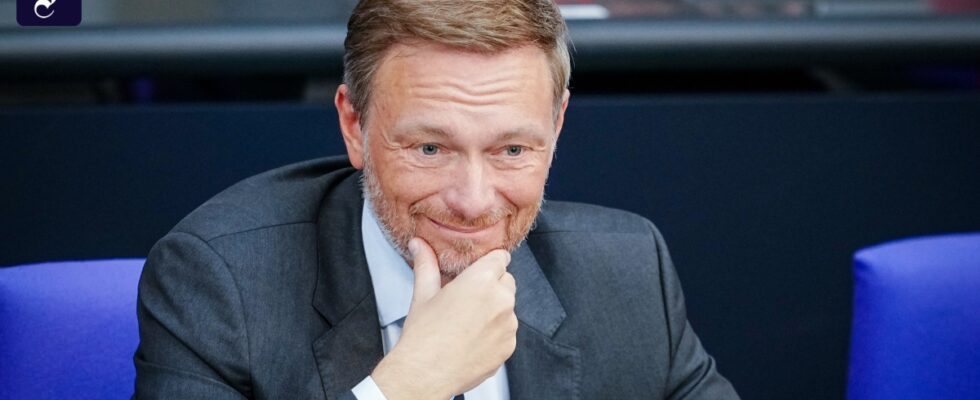DThe Ministry of Finance, led by Christian Lindner (FDP), rules out access to the WSF sub-budget in order to be able to finance new traffic light projects. According to the internal analysis available to the FAZ, such a reallocation of funds encounters high constitutional hurdles. Of the 200 billion euros to cushion the energy crisis, which Chancellor Olaf Scholz (SPD) called the much-quoted term “double boom”, a considerable double-digit billion amount is unlikely to be used.
After prices rose sharply as a result of the Russian invasion of Ukraine, they are now well below the highs. The coalition partners SPD and Greens are obviously keen to use the funds that are no longer needed for other purposes. Lindner is said to have already decided internally never to take part in such a rededication.
Authorization fully utilized
The ministry’s paper first recalls that the Economic Stabilization Fund (WSF) “serves to cushion the consequences of the energy crisis, in particular price increases for gas and electricity in Germany”. To this end, he can spend on a specific catalogue. Most of the measures are limited until June 30, 2024. The Ministry of Finance was authorized to take out loans of 200 billion euros in 2022.
This authorization was also used in full. Funds that are currently not required have been transferred to the reserve of the WSF. “This authorization, which exceeds the rule limit of the debt rule, was only possible by making use of the exception rule of the debt rule,” it says.
In the following, reference is made to the close connection between the filling of the WSF and the decision of the Bundestag on borrowing in the event of an emergency. Both refer to each other and emphasize the earmarking of the loan-financed funds almost word for word: “A legally stipulated earmarking ensures that the funds can only be used for the measures mentioned due to the extraordinary emergency situation and to combat it.”
Only in an “extraordinary emergency situation”
At the time, the legislature considered the measures finally mentioned to be suitable, appropriate and necessary to overcome the emergency. The same also applies to the immediate provision of the funds in 2022. “A subsequent extension of the legal earmarking of the credit-financed funds of the WSF, beyond the purposes mentioned in the decision of the Bundestag to determine the emergency situation, for general state expenditure would violate this constitutional framework violated – even if there was a thematic connection with the effects of the extraordinary emergency situation.”
Now the traffic light has already reallocated unused credit authorizations in order to be able to finance projects during their term of office. With the 2nd supplementary budget for 2021, she pushed funds that the black-red coalition had had the Bundestag approved during the pandemic into the energy and climate fund, today the climate and transformation fund. At that time, the measures laid down were the basis for the decision to make use of the exception rule of the debt rule, it is now said.
The basis was the assessment of the emergency situation at the time and the necessary measures by the Bundestag. “Subsequently “substituting” a different basis of reference would deprive the decision of the German Bundestag of its legitimacy.” From the point of view of Lindner’s people, the consequence is that the Bundestag would have to make a completely new decision in 2023 on the existence of an extraordinary emergency situation. “These conditions are not met.”
Therefore, a reallocation of the WSF funds would justify the risk of a norm control application against this law. In Karlsruhe, proceedings are already underway at the instigation of the Union faction for the 2nd supplementary budget for 2021. “It cannot be ruled out that the Federal Constitutional Court will counteract efforts by the legislator to circumvent the requirements for emergency borrowing by formulating strict standards,” they warn.
